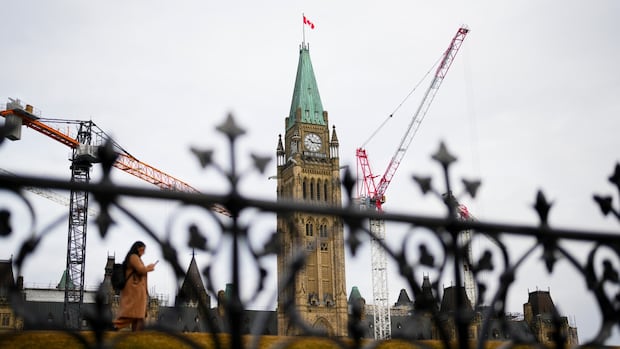Navigating the Storm: Caretaker Governments and the Perils of Trade Wars
Editor's Note: The impact of caretaker governments during periods of international trade conflict is a critical issue, especially given recent global events. This article explores the challenges and complexities of this precarious situation.
1. Why This Matters:
Trade wars inflict significant economic pain. The imposition of tariffs, sanctions, and retaliatory measures creates uncertainty, impacting businesses, investment, and consumer confidence. This is exponentially magnified when a nation is governed by a caretaker administration, lacking the mandate and stability to implement long-term, effective responses. This article explores the unique vulnerabilities of caretaker governments during trade wars, examining real-world examples and offering potential solutions. Key areas explored include limited policy-making power, political instability, and the erosion of international trust.
2. Key Takeaways:
| Challenge | Impact | Solution |
|---|---|---|
| Limited Policy-Making Power | Inability to negotiate trade deals effectively. | Seeking bipartisan support; relying on existing agreements. |
| Political Instability | Uncertainty discourages investment and trade. | Clear communication; focus on stability. |
| Erosion of International Trust | Difficulty in building alliances and securing aid. | Transparency; proactive engagement with partners. |
| Short-Term Focus | Neglect of long-term economic planning. | Prioritizing crucial trade sectors. |
3. Main Content
3.1 Caretaker Governments and Trade Wars: A Volatile Mix
Caretaker governments, often installed during periods of political transition, face significant limitations. Their primary role is to maintain essential services and avoid controversial decisions until a new government is formed. This inherent constraint makes navigating the complexities of a trade war exceptionally difficult. They lack the political capital and long-term vision to implement comprehensive strategies for mitigating the economic fallout. The uncertainty surrounding their tenure further exacerbates the situation, discouraging foreign investment and creating a climate of instability.
Key Aspects: The limitations extend to negotiating new trade agreements, implementing retaliatory measures, and securing international support. This often leaves the nation vulnerable to further economic pressure.
Detailed Analysis: Examples from recent history demonstrate the struggles faced by caretaker governments during trade conflicts. The inability to quickly adapt to changing trade dynamics can lead to prolonged economic downturns and increased social unrest. Case studies should analyze specific examples, highlighting the successes and failures of different approaches.
3.2 Interactive Elements of Trade Policy in a Caretaker Context
The interactive elements of trade policy – negotiations, retaliations, and international collaborations – become significantly hampered under a caretaker government. Each element presents unique challenges.
Facets: Negotiating new trade deals requires extensive time and political capital, something a caretaker government lacks. Retaliatory measures can escalate tensions and further damage already fragile relationships. International collaboration becomes more challenging due to the perception of short-term governance.
Summary: The lack of long-term commitment and the inherent instability associated with a caretaker government undermine the effectiveness of all facets of trade policy, making a nation more susceptible to the negative impacts of trade wars.
3.3 Advanced Insights: Beyond the Immediate Crisis
Beyond the immediate crisis management, the longer-term implications of a caretaker government navigating a trade war deserve attention. The lack of decisive action can have lasting repercussions on a nation’s economic trajectory, its international standing, and its domestic political landscape.
Further Analysis: This section explores the potential for long-term economic damage, examining indicators such as decreased foreign direct investment, increased unemployment, and a decline in national competitiveness. Expert opinions on the long-term economic and political consequences should be included.
Closing: Navigating a trade war under a caretaker government presents a formidable challenge. The lack of long-term vision and the inherent instability hinder effective responses. This necessitates a proactive approach, focusing on clear communication, strategic alliances, and a prioritization of key economic sectors.
4. People Also Ask (NLP-Friendly Answers)
Q1: What is a caretaker government? A: A caretaker government is a temporary administration that governs until a new government is formed, typically after an election or a significant political event. They usually have limited power to enact major policy changes.
Q2: Why are caretaker governments vulnerable during trade wars? A: They lack the political mandate and stability to negotiate effectively, implement comprehensive strategies, and build international consensus. Their limited tenure discourages long-term investment and planning.
Q3: How can a caretaker government mitigate the impact of a trade war? A: By prioritizing stability, seeking bipartisan consensus on essential trade-related decisions, and maintaining open communication with international partners.
Q4: What are the long-term consequences of a caretaker government’s response (or lack thereof) to a trade war? A: Long-term economic damage, decreased international trust, and potential for political instability.
Q5: How can citizens help during this time? A: By remaining informed, engaging in constructive dialogue, and supporting policies that foster economic stability and international cooperation.
5. Practical Tips for Navigating Trade War Uncertainty (During Caretaker Governance)
Introduction: Even during periods of political transition, proactive strategies can mitigate the impact of trade wars.
Tips:
- Diversify trade relationships.
- Invest in domestic industries.
- Support small businesses.
- Advocate for transparent policies.
- Stay informed about trade developments.
- Engage in constructive dialogue.
- Support international cooperation.
- Plan for long-term economic sustainability.
Summary: Proactive measures can help lessen the blow of trade wars, even when governed by a caretaker administration.
Transition: Understanding the challenges and adopting these strategies will help navigate the complexities of a trade war under a caretaker government.
6. Summary:
Caretaker governments face unique challenges during trade wars, hampered by limited power and short-term mandates. Understanding these challenges, fostering international cooperation, and implementing proactive strategies are crucial to mitigating the negative economic and political consequences.
7. Call to Action:
Ready to dive deeper into the complexities of international trade and political instability? Subscribe to our newsletter for more in-depth analysis and expert insights on global economic trends.

